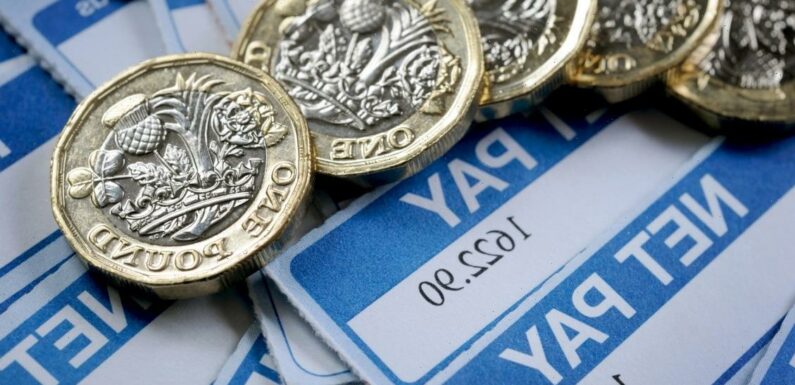
THE National Minimum Wage is the minimum pay per hour millions in employment are entitled to.
It went up in April 2022, giving a pay boost to many in jobs.
But how much you are entitled to depends on how old you are.
Plus, the rates are due to go up again in April this year.
Here's everything you need to know.
The minimum wage rate is decided by the government each year based on recommendations by the Low Pay Commission (LPC).
Millions benefit from the annual increase, as workers are struggling with the rising inflation and the ongoing cost of living crisis.
Companies are named and shamed if they don't pay the basic amount required by the law.
So who qualifies for the National Minimum wage and what is the current rate? We explain everything you need to know.
What is the National Minimum Wage?
The National Minimum Wage is the minimum pay per hour for workers under the age of 23.
The National Living Wage, which is the minimum wage for those over 23, is slightly higher.
But both are different from the Real Living Wage – a voluntary minimum that some employers commit to paying, which is currently £10.90 or £11.95 in London.
These rates increased by 10% in September 2022, benefitting almost 400,000 workers.
The first National Minimum Wage was set in 1998 by the Labour government.
At this time, the main rate applied to workers aged 22 and over and there was a separate rate for those aged 18-21.
Before that, no official rate existed, although trade unions battled hard to fight their members' corner.
A separate rate for 16-17-year-olds was introduced in 2004, and in 2010, 21-year-olds became eligible for the adult rate of the NMW.
What are the National Minimum Wage rates?
The National Minimum Wage is currently the amount workers under 23 (but of school-leaving age) are entitled to.
Exactly what you'll get depends on how old you are.
Here are the rates for 2022/23:
- Those aged 21-22 get at least £9.18 an hour
- For 18- to 20-year-olds, the minimum wage is £6.83 an hour
- Under-18s are entitled to a minimum of £4.81 an hour
- The apprenticeship wage is £4.81.
Meanwhile, the National Living Wage – which is the minimum wage for those aged 23 and over – increased to £9.50 in April 2022.
It meant two million workers received a £1,000 annual increase for a 35-hour week when the new rate kicked in.
The National Minimum Wage and National Living Wage are set to go up from April 1 this year though.
Here are the rates for 2023/24:
- Those aged 21-22 will get at least £10.18 an hour
- For 18- to 20-year-olds, the minimum wage will go up to £7.49 an hour
- Under-18s will be entitled to a minimum of £5.28 an hour
- The apprenticeship wage will go up to £5.28
Meanwhile, the National Living Wage will go up to £10.42 from April 1.
Who gets the National Minimum Wage and am I entitled?
To qualify for the National Minimum Wage, you have to be of school-leaving age, which is usually above 16.
You are eligible to receive the pay rate if you work full-time, part-time or as a casual labourer – for example, someone hired for one day.
You are also entitled to the National Minimum Wage if you are an agency worker or someone paid by the number of items you make.
Apprentices also qualify for a National Minimum Wage, as well as trainees and staff still in their probationary period.
The rates also apply to disabled workers.
Anyone who thinks they are not getting paid fairly should raise the issue with their employer in the first instance.
If this is not effective, the next step is to file a complaint on the government's website.
Employers who do not pay the minimum wage can be publicly "named and shamed".
Those who blatantly fail to comply are also at risk of facing criminal prosecution.
Which workers do not qualify for the National Minimum Wage?
Those who are self-employed, voluntary workers, company directors and family members who live in the home of the employer and do household chores do not qualify for the minimum wage.
Au pairs, members of the armed forces and people on a government employment programme are also not entitled to the payment.
Meanwhile, almost 400,000 workers got a pay rise as the Real living wage rate increased.
In other news, Aldi is giving thousands of its workers a pay rise from February 1.
Plus, inflation has dipped for the second month in a row to 10.5%.
Source: Read Full Article
